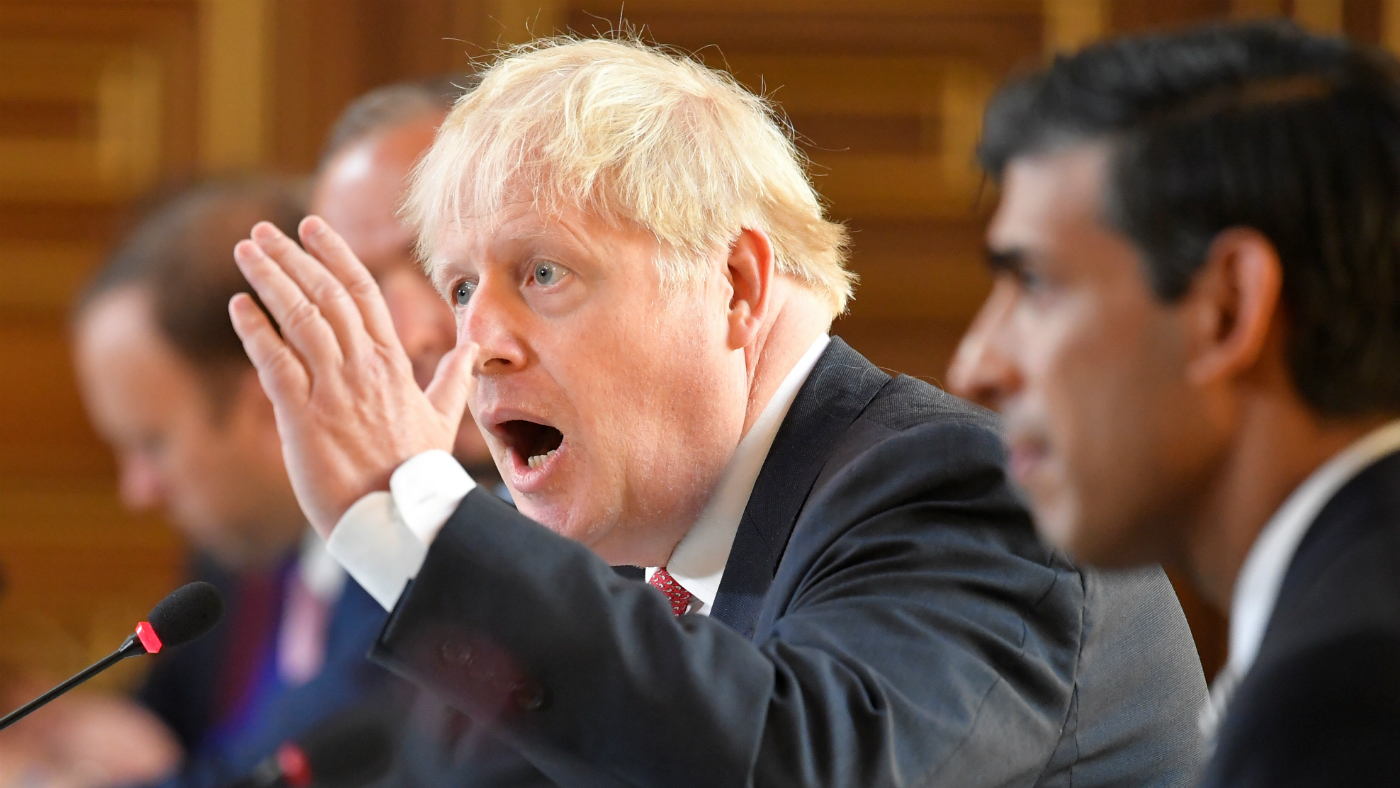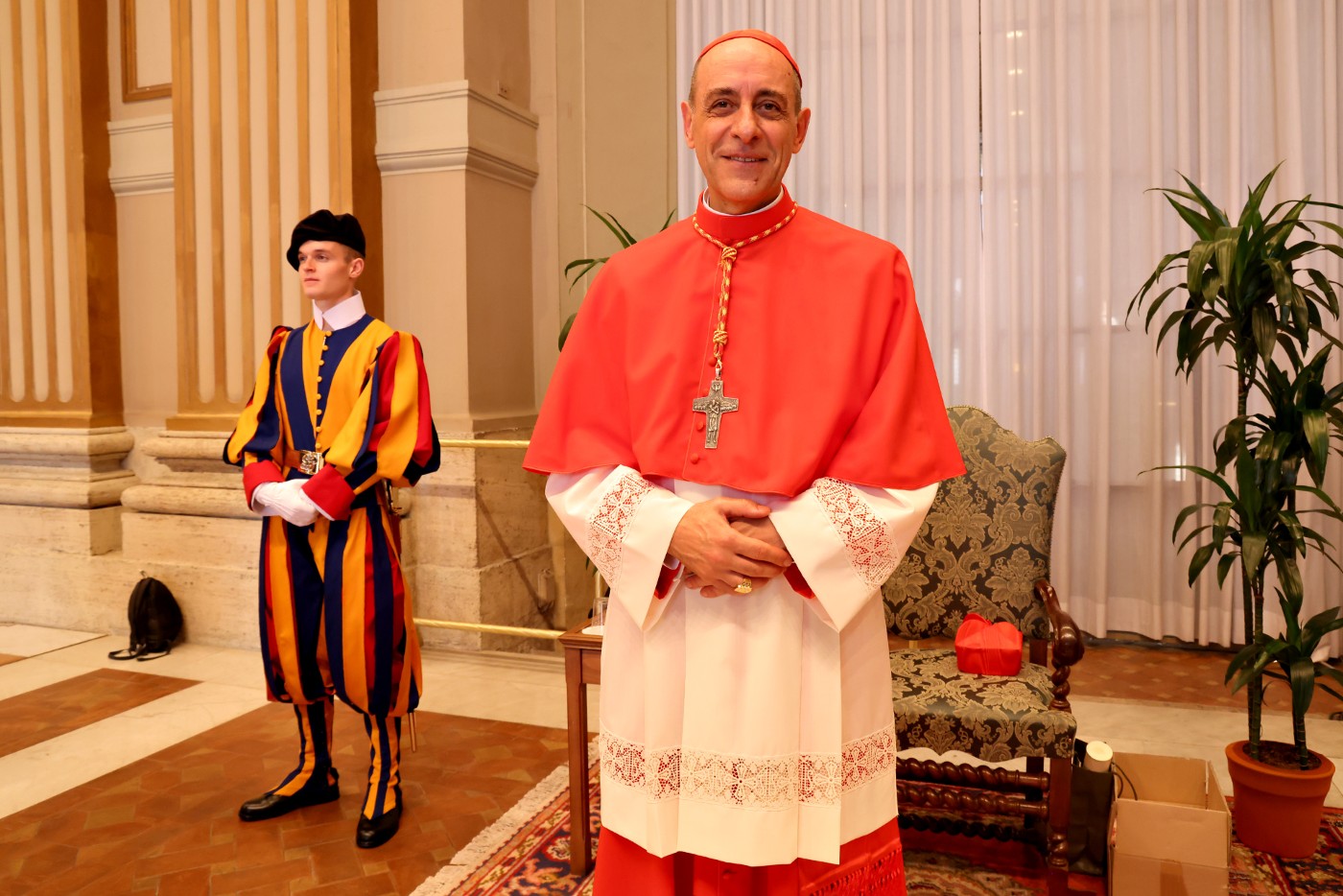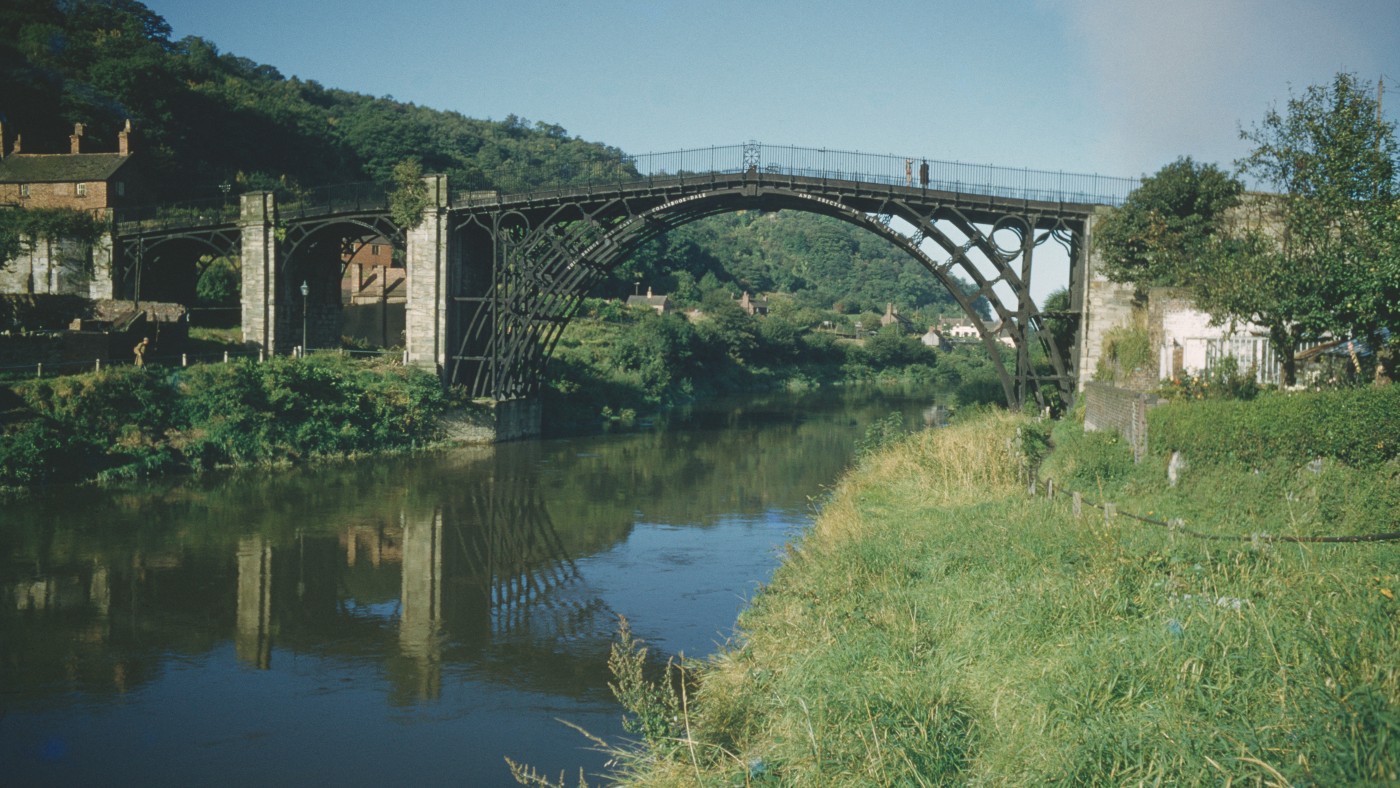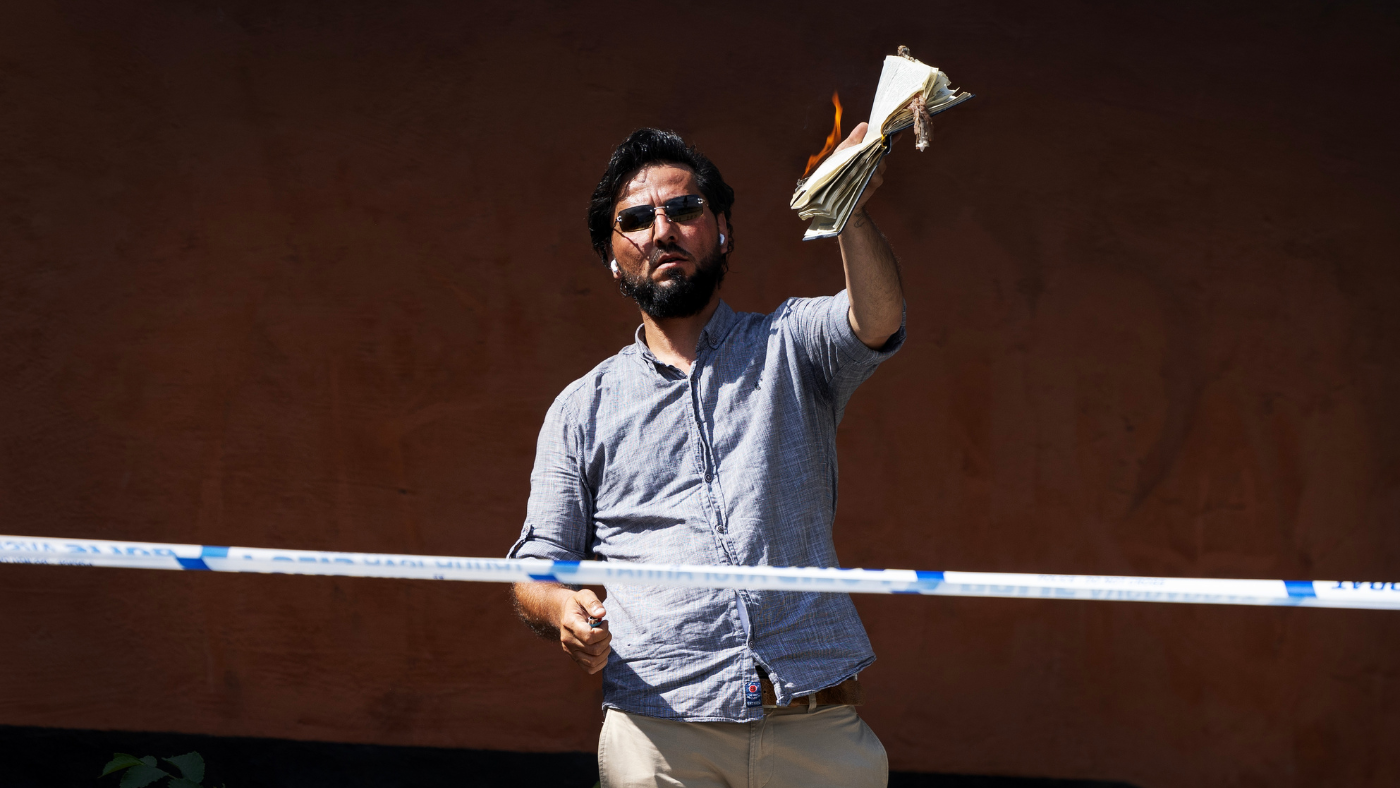Instant Opinion: Conservatives ‘hollowing the state and consolidating power’
Your guide to the best columns and commentary on Monday 30 November

A free daily email with the biggest news stories of the day – and the best features from TheWeek.com
You are now subscribed
Your newsletter sign-up was successful
The Week’s daily round-up highlights the five best opinion pieces from across the British and international media, with excerpts from each.
1. Andrew Fisher in The Guardian
on dismantling the system from within
The Week
Escape your echo chamber. Get the facts behind the news, plus analysis from multiple perspectives.

Sign up for The Week's Free Newsletters
From our morning news briefing to a weekly Good News Newsletter, get the best of The Week delivered directly to your inbox.
From our morning news briefing to a weekly Good News Newsletter, get the best of The Week delivered directly to your inbox.
The Conservatives are hollowing the state and consolidating power: democracy is at stake
“For 15 years now, the Freedom of Information Act has been hugely important in increasing the transparency and scrutiny of government. Strangely, Blair continues to defend the Iraq war but regrets the act for partially opening up the ‘confidentiality’ of government. Michael Gove clearly shares his scepticism, as under him the Cabinet Office has established a unit that is actively delaying or blocking the release of information legally demanded under the act. The Conservative party chair, Amanda Milling, has said the Electoral Commission should be overhauled or abolished. Its current chair, John Holmes, is being forced out and mandatory voter ID is being mooted, which would suppress working-class voters who are less likely to have ID – another unwelcome import from the US, where voter suppression has long been part of Republican strategy. The Electoral Commission has been a brake on well-funded Conservative party election campaigns, as well as the leave campaign in the 2016 referendum.”
2. Trevor Phillips in The Times
on pointing fingers
A free daily email with the biggest news stories of the day – and the best features from TheWeek.com
The woke are gaslighting us into surrender
“Dismayingly, those allegedly responsible for the education of young minds are caving under the pressure and abandoning principle for the quiet life. Cambridge University is proposing a change in statutes that would require staff to display respect for the views of all colleagues — inter alia misogynists, fascists, Islamists, homophobes, flat-Earthers, climate change deniers, racists and antisemites. Despite a spirited campaign led by a minority academic, Arif Ahmed, the five men and one woman who occupy the most senior roles in the university — all white — appear to have been manipulated into overturning centuries of dedication to freedom of thought and tolerance under the guise of compassion for minorities. Maybe when they read the ‘woke’ bible White Fragility, they took the title as an instruction to deliver rather than a warning to avoid.”
3. Rana Ayyub in The Washington Post
on India’s deepening schisms
The hateful love ‘jihad’ conspiracy in India is going mainstream
“In recent weeks and days, the Indian right has been waging a campaign against any depictions of interfaith relations, including attacking Netflix for showing a kissing scene between a Muslim boy and a Hindu girl. These attacks keep feeding the dangerous ‘love jihad’ conspiracy theory, the proponents of which seek to ultimately constrain and restrict the freedom of Hindu women and further demonize Muslims in India. Videos of Hindu vigilantes beating up Muslim boys for allegedly falling in love with Hindu girls once generated universal condemnation. Now these attacks are gaining legitimacy. In a country whose guiding principle was love and respect for a plurality of views, faiths and cultures, the ruling party’s attacks on interfaith love to consolidate the support of Hindu nationalists are part of Modi’s broader assault on our once-vibrant democracy.”
4. Will Bunch in the Philadelphia Inquirer
on cinematic slaughter
From Terre Haute to Tehran to your grandma, Trumpism is revealed as a death cult in the end
“For a man who too often talked and occasionally governed more like a mob boss than like the 45th president of a democratic republic, it’s sadly fitting that the final days of Donald Trump’s White House are playing out like a closing montage from one of The Godfather movies. Cue the operatic aria, or maybe the piano riff from Layla, as the camera pans over the bloody pavement in a faraway village in Iran and the windshield of a sedan riddled with bullet holes, as a top nuclear scientist is brutally whacked just days after a not-so-secret sit-down between the crime bosses of Saudi Arabia and Israel with Trump’s traveling consigliere. The brutal killing of Mohsen Fakhrizadeh is arguably the most cinematic moment in our Trumpian death montage, but it’s not the most lethal. At a federal prison in Terre Haute, Ind., Attorney General William Barr’s Justice Department is racing to commit state-sanctioned murder against five more inmates before Trump leaves office — the first time since 1889 that a lame-duck presidency has carried out any executions at all.”
5. Hugh Eakin in the New York Times
on the ancient spoils of modern war
When an enemy’s cultural heritage becomes one’s own
“Perched on a rugged slope in the western part of Nagorno-Karabakh, a disputed region, Dadivank is one of the hundreds of Armenian churches, monuments and carved memorial stones that will come under the control of predominantly-Muslim Azerbaijan according to a cease-fire agreement reached earlier this month. Some of those structures — like the Amaras monastery and the basilica of Tsitsernavank - date to the earliest centuries of Christianity. For many Armenians, turning over so much of their heritage to a sworn enemy poses a grave new threat, even as the bloodshed has for the moment come to an end. Their concern is understandable. Under the cease-fire, hundreds of thousands of Azerbaijanis uprooted by a previous war in the early 1990s will be able to return. In a victory speech on Nov. 25, President Ilham Aliyev of Azerbaijan suggested that Armenians have no historical claims to the region, asserting that the churches belonged to ancient Azerbaijani forebears and had been ‘Armenianized’ in the 19th century.”
-
 The environmental cost of GLP-1s
The environmental cost of GLP-1sThe explainer Producing the drugs is a dirty process
-
 Greenland’s capital becomes ground zero for the country’s diplomatic straits
Greenland’s capital becomes ground zero for the country’s diplomatic straitsIN THE SPOTLIGHT A flurry of new consular activity in Nuuk shows how important Greenland has become to Europeans’ anxiety about American imperialism
-
 ‘This is something that happens all too often’
‘This is something that happens all too often’Instant Opinion Opinion, comment and editorials of the day
-
 Pope aide under fire for 'mystical orgasms' book
Pope aide under fire for 'mystical orgasms' bookTall Tales And other stories from the stranger side of life
-
 Thieves who stole shopping bag in for big disappointment
Thieves who stole shopping bag in for big disappointmentTall Tales And other stories from the stranger side of life
-
 Woman has one in 50 million pregnancy
Woman has one in 50 million pregnancyTall Tales And other stories from the stranger side of life
-
 Triangle-headed aliens touched Goldie Hawn
Triangle-headed aliens touched Goldie HawnTall Tales And other stories from the stranger side of life
-
 Flies attack Donald Trump
Flies attack Donald TrumpTall Tales And other stories from the stranger side of life
-
 The spiralling global rice crisis
The spiralling global rice crisisfeature India’s decision to ban exports is starting to have a domino effect around the world
-
 Donald Trump criminal charges for 6 January could strain 2024 candidacy
Donald Trump criminal charges for 6 January could strain 2024 candidacySpeed Read Former president’s ‘pettifoggery’ won’t work well at trial, said analyst
-
 Koran burning in Scandinavia: freedom of expression’s ultimate test?
Koran burning in Scandinavia: freedom of expression’s ultimate test?Talking Point Anti-Islam demonstrations have sparked condemnation and raised constitutional challenges for Sweden and Denmark